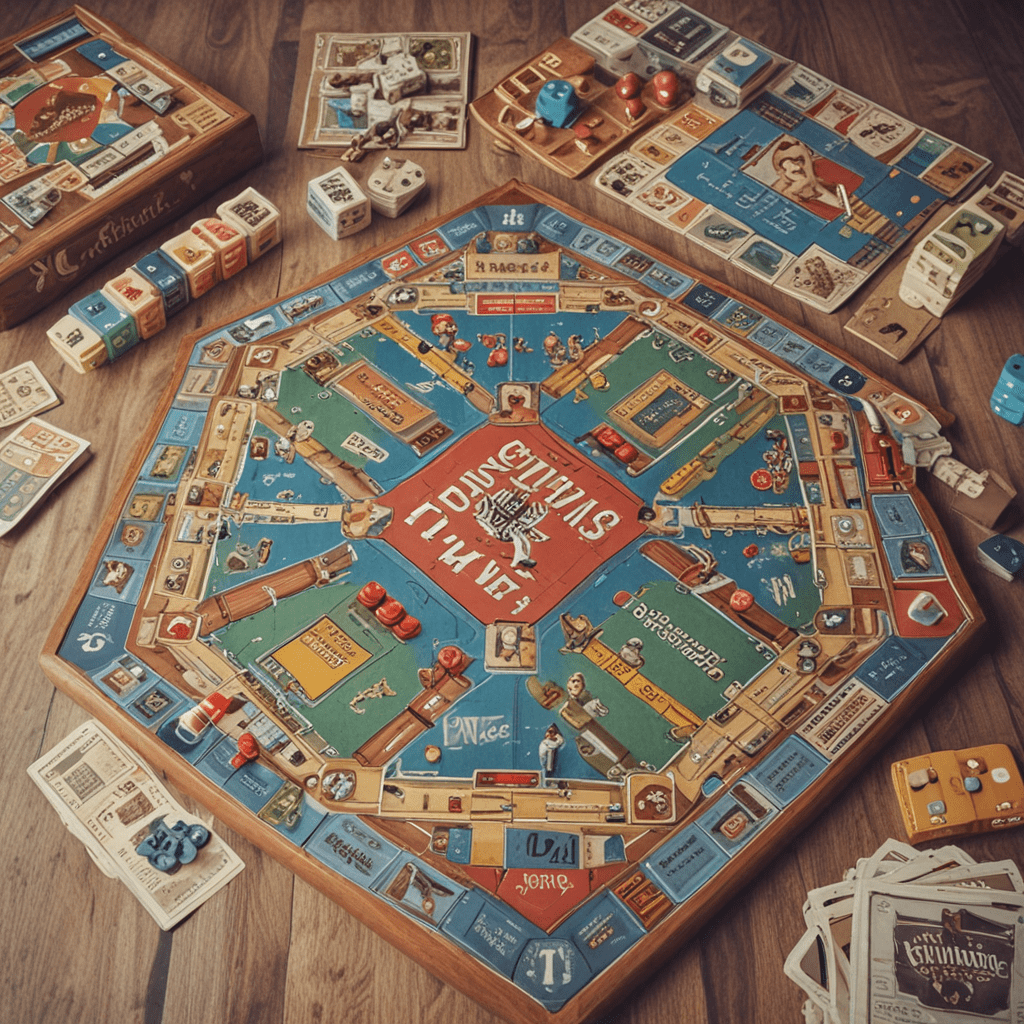
Fitness-Themed Board Games for Children
Introduction: Importance of Fitness in Childhood Development
In today's world, where children often spend excessive time engaged in sedentary activities, the importance of physical activity cannot be overstated. A healthy lifestyle, including regular exercise, is essential for their overall well-being and proper development. Fitness-themed board games provide an innovative and engaging way to promote physical activity and encourage children to adopt healthy habits from a young age.
Benefits of Fitness-Based Board Games
Fitness board games offer numerous benefits for children, including:
- Improved physical fitness: These games get kids moving, helping them develop their coordination, balance, and cardiovascular health.
- Increased enjoyment: Engaging and interactive, these games make exercising fun and enjoyable, motivating kids to participate without feeling like they're doing a chore.
- Enhanced social skills: Playing board games fosters teamwork, communication, and problem-solving abilities, promoting healthy social development.
Types of Fitness-Themed Board Games
Fitness board games come in various types, each designed to focus on specific fitness components. These include:
Board Games that Promote Physical Activity: Games that encourage movement and energy expenditure, such as jumping, hopping, and running.
Board Games for Balance and Coordination: Games that require balancing and coordinating body movements, improving agility and coordination.
Board Games for Flexibility and Range of Motion: Games that involve stretching and stretching exercises, enhancing flexibility and range of motion.
- Board Games for Strength and Endurance: Games that require physical exertion and stamina, building strength and endurance.
Educational Value of Fitness Board Games
Apart from promoting physical fitness, fitness board games also have educational benefits:
Spatial awareness: Games involving movement around the board enhance spatial awareness and navigational skills.
Counting and math: Games with number-based gameplay promote counting, math operations, and strategic thinking.
Fine motor skills: Some games require precision and dexterity, improving fine motor skills.
- Cognitive skills: Games involving decision-making and problem-solving foster cognitive development and critical thinking abilities.
Tips for Choosing Age-Appropriate Games
When selecting fitness board games for children, consider these factors:
Age and developmental stage: Choose games suitable for the child's age, cognitive abilities, and fitness level.
Skill level: Start with easier games to avoid frustration and promote enjoyment. Gradually introduce more challenging games as the child progresses.
Interests: Select games that align with the child's interests and preferences, ensuring their engagement and participation.
- Safety: Opt for games with safe and age-appropriate materials, minimizing any risk of injury.
Incorporating Fitness Games into Playtime
To effectively use fitness board games:
Set a regular play schedule: Incorporate the games into a regular play routine for consistent physical activity.
Make it a family activity: Play these games as a family, encouraging everyone to participate and enjoy the fun and challenge together.
Vary the games: Rotate different game types to target various fitness components and maintain interest.
- Foster a positive atmosphere: Keep the game environment positive, enthusiastic, and free of pressure or competition.
Frequently Asked Questions (FAQs)
Are fitness board games effective for weight loss? While these games are not specifically designed for weight loss, they can contribute to weight management by increasing physical activity and calorie expenditure.
How much playtime is recommended for fitness board games? Aim for at least 30 minutes of game time daily or as much as the child is interested in and enjoys.
Can fitness board games help children with special needs? Yes, certain games can be tailored to accommodate children with special needs by modifying rules or providing assistive devices.


